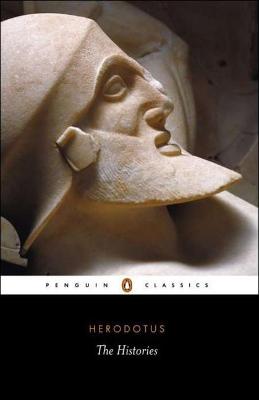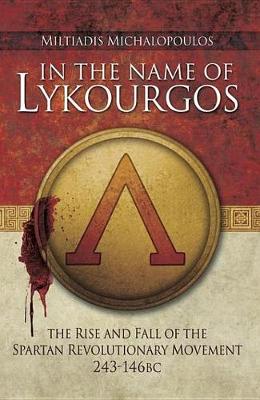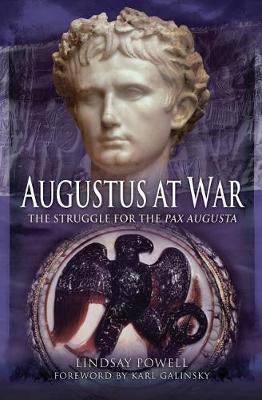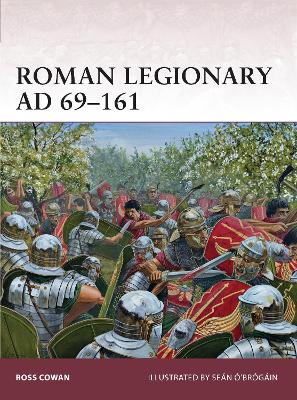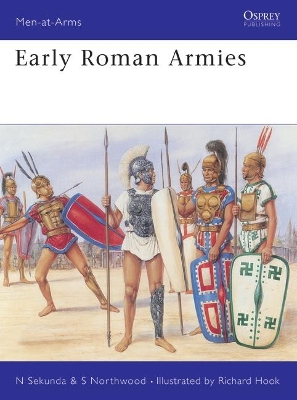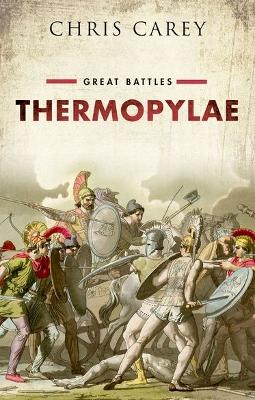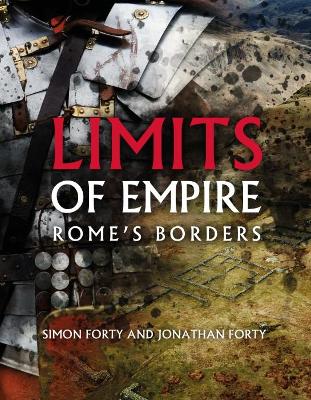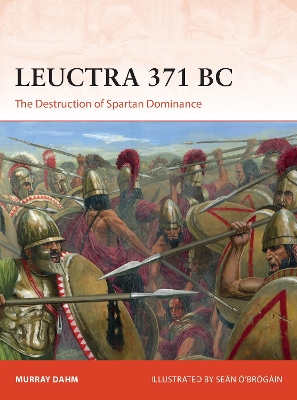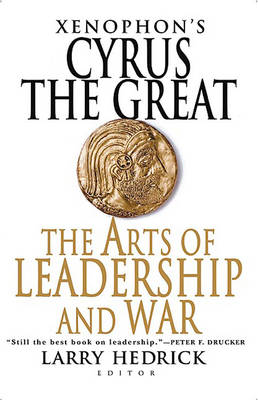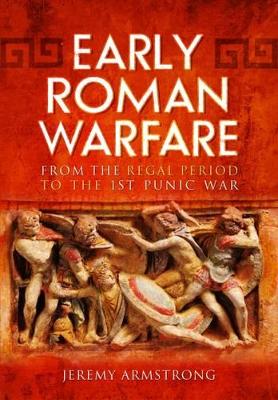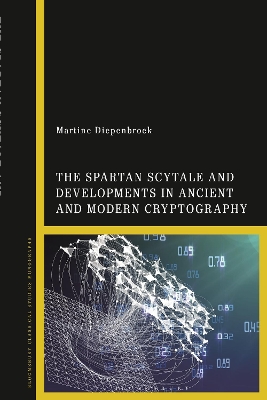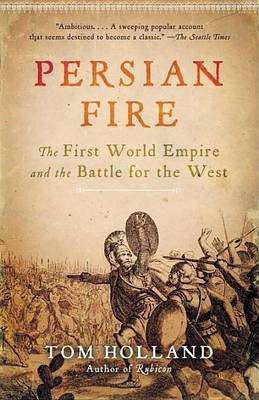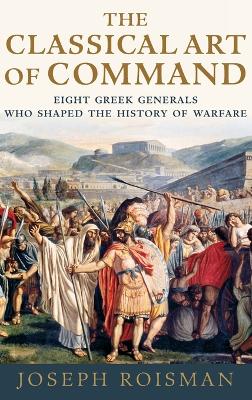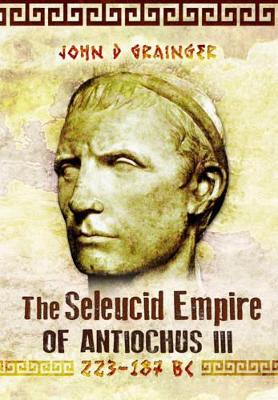In the middle of the 3rd century B.C. Sparta was a shadow of its glorious past. Politically and militarily weakened and with huge inner social problems, she seemed to have followed the fate of most contemporary city- states and fallen on the fringe of the political developments of her time. The 3rd century was a time when the great states and the Hellenistic empires were prominent. But contrary to the other city states, which compromised with the new political forces of their time, Sparta resist...
'A superb analysis of the military power that underpinned Augustus' rise to power, his conquests, and his ability to sustain his rule. Powell's achievement is to demonstrate just how much Augustus deserved his name of `Imperator'.'- Tom Holland, presenter of BBC Radio 4 Making History. Author of Dynasty: The Rise and Fall of the House of Caesar. 'Powell meticulously details and analyzes the composition, deployment, and actions of this army and provides a much needed resource of information that...
In the middle years of the second century BC, Rome was engaged in the conquest and pacification of what is now Spain and Portugal. They met with determined resistance from several tribes but nobody defied them with more determination and skill than Viriathus. Apparently of humble birth, he emerged as a leader after the treacherous massacre of the existing tribal chieftains and soon proved himself a gifted and audacious commander. Relying on hit and run guerrilla tactics, he inflicted repeated...
Military History of Late Rome, 395-425 (Military History of Late Rome)
by Dr Ilkka Syvanne
Between AD 69 and 161 the composition of the Roman legions was transformed. Italians were almost entirely replaced by provincial recruits, men for whom Latin was at best a second language, and yet the ‘Roman-ness’ of these Germans, Pannonians, Spaniards, Africans and Syrians, fostered in isolated fortresses on the frontiers, was incredibly strong. They were highly competitive, jealous of their honour, and driven by the need to maintain and enhance their reputations for virtus, that is manly cour...
At eighteen Alexander had conquered mainland Greece, was crowned King of Macedonia at twenty and by twenty-six he had made himself master of the once mighty Persian Empire. By the time of his death, aged only thirty-three, in 323BCE he was ruler of the known world and was being worshipped as a god by the Greeks, both at Babylon, where he died, and further west, among the Greek cities of the Asiatic seaboard. The fruit of a lifetime's scholarship and meticulous research, this is an outstanding bi...
The early Romans were only one of a number of peoples that inhabited Iron Age central Italy. From the 8th to the 3rd century BC, the Romans undertook territorial expansion, and conflict with neighbouring tribes and cultures resulted in open war, most notably with the Samnites. Alliances sprang were created too but the rise of Rome was unstoppable. This title covers the equipment, weaponry and dress of the early Romans, from the traditional foundation in 753 BC to the third century BC, where the...
During the Battle of Thermopylae in 480 BC, a Greek force of approximately 7,000 faced the biggest army ever seen in the Greek peninsula. For three days, the Persians—the greatest military force in the world—were stopped in their tracks by a vastly inferior force, before the bulk of the Greek army was forced to retreat with their rear guard wiped out in one of history's most famous last stands. In strict military terms it was a defeat for the Greeks. But like the British retreat from Dunkirk o...
The borders of the Roman Empire were frontiers that were often wild and dangerous. The expansion of the empire after the Punic Wars saw the Roman Republic become the dominant force in the Mediterranean as it first took Carthaginian territories in Gaul, Spain and north Africa and then moved into Greece with purpose, subjugating the area and creating two provinces, Achaea and Macedonia. The growth of the territories under Roman control continued through the rise of Julius Caesar - who conquered th...
This detailed new study explores the battle of Leuctra and the tactics that ultimately led to the complete defeat of Sparta, and freed Greece from domination by Sparta in a single afternoon. The battle of Leuctra, fought in early July in 371 BC was one of the most important battles ever to be fought in the ancient world. Not only did it see the destruction of the Spartan dominance of Greece, it also introduced several tactical innovations which are still studied and emulated to this day. Sparta...
The Swords of Silence the (The Swords of Fire Trilogy, #1)
by Shaun Curry
'AN INTELLIGENTLY PRESENTED HISTORICAL FANTASY THAT PROVOKES THOUGHT FROM THE START' THE BRITISH FANTASY SOCIETY Where once new ideas and beliefs were accepted, now the country's military dictator, the Shogun is shutting his country down to any outside influences. Father Joaquim Martinez who left Portugal to make Hizen Province, Japan his home, has been quietly tending to the lives of his villagers, but everything is about to be thrown into turmoil, as the Shogun has outlawed Martinez's belief...
Josephus's The Jewish War (Lives of Great Religious Books, #45)
by Martin Goodman
An essential introduction to Josephus's momentous war narrativeThe Jewish War is Josephus's superbly evocative account of the Jewish revolt against Rome, which was crushed in 70 CE with the siege of Jerusalem and the destruction of the Temple. Martin Goodman describes the life of this book, from its composition in Greek for a Roman readership to the myriad ways it touched the lives of Jews and Christians over the span of two millennia.The scion of a priestly Jewish family, Josephus became a rebe...
In 1906, a stilted English translation of "Xenophon of Athens", story about Cyrus the Great's military campaigns was published. Now, a century later, a much more accessible edition of one of history's most extraordinary and successful leaders is emerging. Among his many achievements, this great leader of wisdom and virtue founded and extended the Persian Empire; conquered Babylon; freed 40,000 Jews from captivity; wrote mankind's first human rights charter; and ruled over those he had conquered...
Early Roman Warfare: From the Regal Period to the First Punic War
by Jeremy Armstrong
While copious amounts have been written about the Roman army, most study has focussed on the later Republic or the Imperial period when the legionary system was already well-developed. Here Dr. Jeremy Armstrong traces the development of Rome's military might from its earliest discernible origins down to the First Punic War. He shows how her armies evolved from ad hoc forces of warriors organized along clan lines to the sophisticated organization of the legions that went on to dominate all of Ita...
The Spartan Scytale and Developments in Ancient and Modern Cryptography
by Dr Martine Diepenbroek
This book offers a comprehensive review and reassessment of the classical sources describing the cryptographic Spartan device known as the scytale. Challenging the view promoted by modern historians of cryptography which look at the scytale as a simple and impractical 'stick', Diepenbroek argues for the scytale's deserved status as a vehicle for secret communication in the ancient world. By way of comparison, Diepenbroek demonstrates that the cryptographic principles employed in the Spartan scyt...
In 480 BC, Xerxes, the King of Persia, led an invasion of mainland Greece. Its success should have been a formality. For seventy years, victory - rapid, spectacular victory - had seemed the birthright of the Persian Empire. In the space of a single generation, they had swept across the Near East, shattering ancient kingdoms, storming famous cities, putting together an empire which stretched from India to the shores of the Aegean. As a result of those conquests, Xerxes ruled as the most powerful...
This book uniquely looks at the many facets of Greek generalship through the individual careers of some of the best-known Greek commanders. They include the Spartan king Leonidas, who embodied his countrymen's heroic ethos in the battle of Thermopylae against the Persian invader; the Athenian leader Themistocles, credited as the architect of Athens' naval power and of the Greek victory over the Persians; the famous democratic leader, Pericles, who prepared Athens and directed its conflict with S...
The second volume in John Grainger's history of the Seleukid Empire is devoted to the reign of Antiochus III. Too often remembered only as the man who lost to the Romans at Magnesia, Antiochus is here revealed as one of the most powerful and capable rulers of the age. Having emerged from civil war in 223 as the sole survivor of the Seleukid dynasty, he shouldered the burdens of a weakened and divided realm. Though defeated by Egypt in the Fourth Syrian War, he gradually restored full control ov...
